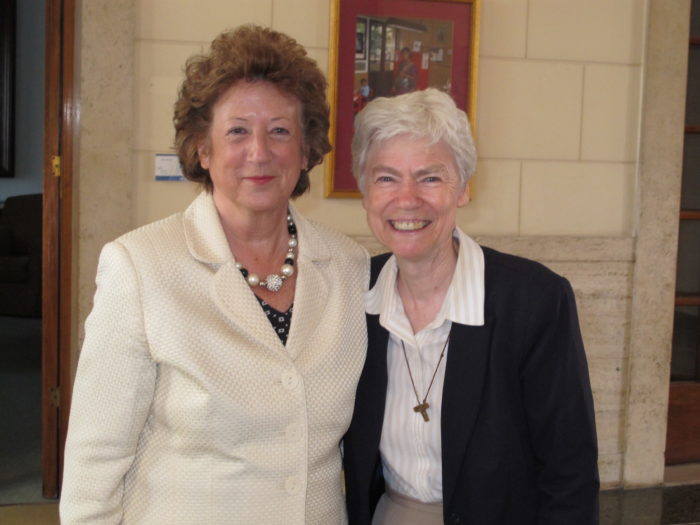26th May 2016
Catholic religious on the front line


Baroness Anelay, Foreign Office Minister and the Prime Minister’s Special Representative on Sexual Violence in Conflict, paid a brief visit to Rome last week. The main focus of her trip was to meet religious men and women from Catholic congregations working in Africa and elsewhere to help the victims of sexual violence in conflict. The meeting had to be held behind closed doors because of the very real potential threat to sisters and brothers operating in this area. We opened with a prayer for religious recently murdered in south Sudan, abducted in Yemen, and violently attacked in Nigeria – sad testimony to the dangerous conditions in which so many work.
Baroness Anelay saluted their constancy, commitment and courage. The discussion revealed the deep understanding of the realities on the ground by so many religious who have dedicated their lives to helping others. One said that he had lived in the Democratic Republic of Congo (before Zaire) since 1970, and since 2009 had focused on helping to rehabilitate victims of sexual violence, traumatised by their experience, back into the community. Another sister gave us a harrowing picture of her work in the borderlands of Congo and Uganda devastated by the so-called Lord’s Resistance Army militia. Harrowing, but also hopeful. She, unlike many international NGOs, did not leave when trouble arrived.
My government is hoping to be able to work more closely with this network of extraordinary men and women. One of the real problems for victims of sexual violence is the stigma that sticks to the victim, not the perpetrator. We learned from the religious we met that a crucial aspect of reintegration into society was helping the victim recover his or her social identity, as well as training and education for the victim and for their children. Sadly, so much remains to be done. The British government is determined to do more to prevent this appalling but all too prevalent crime. Tackling impunity through the very practical International Protocol now available in many languages, training military including UN forces, and dealing with judicial corruption are all pieces in the jigsaw.
What Catholic religious men and women are doing, day in and day out, to help and support the victims, is a vital and selfless service that we should never take for granted. They are trying, through their own umbrella organisations based in Rome, to strengthen cooperation between the many different congregations that are working in this area. We wish them well in this effort, and look forward to cooperating with them in our common battle against hate, violence and corruption. Rape as a weapon of war needs to be eradicated. Catholic religious are in the front line against it.